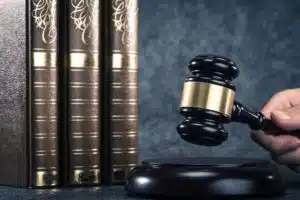If you have been convicted of a crime by a Washington State court, you have the right to have your conviction reviewed on appeal. State convictions are typically reviewed in the Washington Court of Appeals. In general, the Washington appeals process involves six distinct steps or stages. Our experienced Washington appeals attorneys break down these stages below.
Notice of Appeal
Defendants, or their criminal defense attorneys, file a written notice of appeal with the trial court to properly begin the appeals process. This notice contains the following:
- An official statement telling the court that the defendant wishes to appeal, and
- A description of the specific decision or order that the defendant is appealing.
Washington law says that defendants normally have to file an appeal within 30 days of their final judgment.
Record on Review
A record of review essentially informs the appellate court of everything that happened at trial. It generally includes:
- Any exhibits that were introduced at trial,
- Relevant court documents (for example, the court order the defendant wishes to appeal), and
- A “report of proceedings.”
Note that a report of proceedings is a report of everything that was said at trial. Defendants usually submit this report via a word-for-word transcription of everything recorded during the trial.
Briefs and Oral Argument
Briefs are legal documents presented by the defendant appealing a court order and the state. Note that the defendant appealing a decision is known as the “appellant.” This party prepares an “appellant brief,” which is a written argument in support of the appeal. In particular, it sets forth:
- The pertinent facts of the case,
- The trial court’s ruling,
- The alleged errors made by the trial court, and
- The reasons why the appellate court should overturn a conviction or judgement.
Once the appellant files a brief, the state then files a ‘respondent brief” with the court. The state typically uses this brief to argue that the trial court did not commit any legal errors.
Once the applicable parties submit their briefs, the court may schedule a court hearing where the appellant and a lawyer for the state present an oral argument in support of their briefs.
Decision
The court of appeals issues a formal decision after reviewing the record and hearing oral arguments. The decision either affirms or reverses a defendant’s conviction/judgement. The court of appeals can also decide to remand the case. Here, the appeals court makes a specific ruling and then remands the case, or sends it back to the trial court, for the trial court to take action consistent with the decision of the court of appeals.
Motion to Reconsider
If an appellant is not happy with a decision, the party can file a motion to reconsider. The motion essentially argues that the appellate judges did not:
- Follow the law correctly in their decision, or
- Fully consider the appellant’s arguments.
The state can file a response to an appellant’s motion to reconsider.
Discretionary Appeal
If the appeals court affirms the trial court’s decision or denies a motion to reconsider, the appellant can ask a higher court to review the decision of the appeals court. Note that this higher court is not obligated to hear a second appeal. Rather, the higher court has the discretion not to accept review.
Contact Black & Askerov for Help
While a defendant can appeal a conviction or judgement, it will take a skilled criminal defense attorney to submit the best appeal. Appeals and requests for post-conviction relief can be complicated. There are strict time limits and tricky procedural requirements, and complex legal issues are frequently involved.
Our appeals attorneys are well-acquainted with appellate procedures in state and federal courts, and know how to identify and present the strongest arguments on appeal. Our Seattle appeals lawyers have successfully represented many clients in appeals and post-conviction cases. Contact us now to get the quality legal help you deserve!

